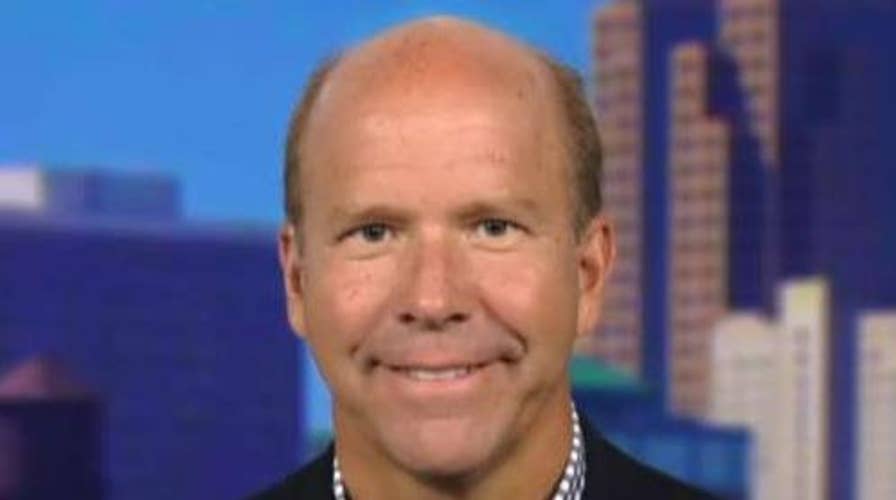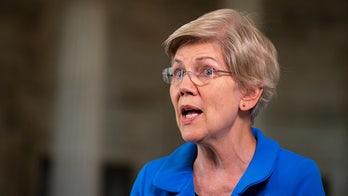Democratic presidential candidate John Delaney explains opposition to 'Medicare for all' proposals
Former Maryland Congressman John Delaney breaks with progressive Democratic presidential rivals.
CONCORD, N.H. – White House contender John Delaney is taking aim at the Democratic National Committee, calling their move to increase the thresholds to qualify for the third and fourth round of primary debates “a terrible idea.”
The former three-term congressman from Maryland – who’s one of the longer-shots for the Democratic nomination – told Fox News while campaigning in the first-in-the-nation presidential primary state of New Hampshire that “I believe in the fullness of time that this is going to be viewed as a disastrous decision.”
DELANEY SAYS DEMS CAN'T BEAT TRUMP BY 'MINDLESSLY FOLLOWING' BERNIE SANDERS
The DNC announced in late May that to qualify for the third and fourth round of debates – which will be held in September and October – candidates must receive 2 percent or more support in at least four national or early voting state polls recognized by the national party. The threshold for the first two rounds of debates is 1 percent in three polls.
And candidates must also receive contributions from a minimum 130,000 unique donors, as well as 400 unique donors in at least 20 states. The 130,000 threshold is double the 65,000 needed to make the debate stage at the first two rounds, and the 400 donors in each state is double the 200 currently needed.
The DNC’s mandates to candidates to clear both the polling and donor hurdles is a switch from the first two rounds, when the contenders only had to hit one of the criteria.
Delaney is partially self-financing his presidential campaign, which will make reaching the 130,000 unique donors challenging, but the candidate said he thinks he can reach the new donor threshold.
“I think it’s such a terrible idea,” Delaney told Fox News on Tuesday. “Only about 10-12 percent of the American people have ever given money online. Most of them are wealthier. Most of them live in California or New York. So the DNC is basically requiring for people to be on the debate stage to win a primary with those people in many ways before they can actually take their case to the American people.”
But Delaney is struggling in the polls -- the latest ABC News/Washington Post poll showed him with less than 1 percent, a bottom tier occupied by numerous lesser-known Democrats.
Delaney argued that in the long run the move will be seen as “a disastrous decision because it’s orientating the Democratic field to spend all their money on Facebook ads with very activists orientated messages instead of by talking about the things that matter to working families, like fixing public education and improving health care, creating early childhood education, building infrastructure.”
And he emphasized that “those are the kind of messages that matter to the American people. They’re not the kind of messages that win the social media primary.”
The former congressman from Maryland is the latest of the lower-tier candidates to criticize the DNC over the debate thresholds.
Delaney received 6.5 minutes of speaking time during last week’s debates. That was 4.5 minutes less than Sen. Cory Booker of New Jersey, who landed the most time during the first of the two straight nights of debates.
For the DNC, grappling with roughly two-dozen candidates is uncharted waters. The Democratic field easily tops the then-record 18 Republicans running for the GOP’s 2016 presidential nomination.
DNC Chairman Tom Perez called the threshold-raising a normal procedure.
"If you can't run an effective grassroots campaign in the year 2020, in today's era, you're not going to be able to win the presidency," Perez told CBS News several weeks ago.
"What we wanted to do was make sure that we had multiple opportunities where they could present their vision to the American people. And then, as it happens in every primary cycle, you've got to demonstrate progress, and that's what September is about," he added.
Delaney proposed, instead, picking a handful of top issues for the debates and giving the candidates a minute each to discuss them. Delaney – who declared his candidacy two years ago – spoke with Fox News after holding his 100th campaign event in New Hampshire.





